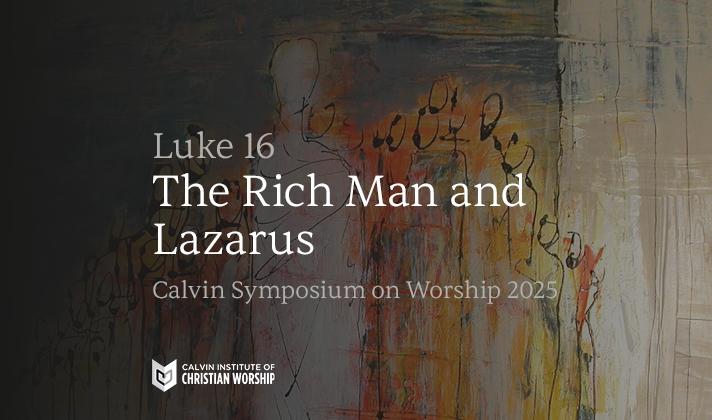Many people around the world are multilingual but do not have access to the scriptures in their mother tongue. Beyond language, some cultures are oriented to oral methods of communication rather than reading and writing. What methods, resources, and new technology are available to people who prefer to listen to God’s Word rather than read it? This talk is a wide-ranging discussion how to make God’s Word available to people in a language and format that is most meaningful to them. Explore how insights from a Bible translator might challenge you to think about how people in your community absorb the deep meaning of scripture.
Summary
Listen Online
Details
Recent Media Resources
Parable of the Good Samaritan
This worship service focuses on the parable of the Good Samaritan in Luke 10:25-37. The Holland Christian High School Symphonic Orchestra, directed by Scott VandenBerg, leads the music with accompaniment from Alexis VanZalen. Calvin University’s Awakening group leads congregational singing featuring a selection of emerging bilingual Korean-English songs. Andrea Bult delivers the message, and students from Calvin University’s Ministry Leadership Cohort, alongside their mentor, Noel Snyder, guide the liturgy.
The Friend at Midnight
This worship service centers on the story of the friend at midnight in Luke 11:5-13. Sandra McCracken, in collaboration with the Calvin University 91Ń‘∆ś Apprentices and their mentor, Paul Ryan, lead congregational worship. Janette Ok delivers the sermon, and Becca Tellinghuisen leads the scripture reading.
Parables of the Lost Sheep, Coin, and Son
This service of the word and table includes a message on Luke 10 from Kevin Adams, who reflects on the parables of the lost sheep, coin, and son. Communion is celebrated following the message. Proskuneo Ministries leads the music, and the Calvin University Ministry Leadership Cohort, alongside their mentor, Joanna Wigboldy, guides the liturgy.
Parable of the Good Samaritan
This worship service focuses on the parable of the Good Samaritan in Luke 10:25-37. The Holland Christian High School Symphonic Orchestra, directed by Scott VandenBerg, leads the music with accompaniment from Alexis VanZalen. Calvin University’s Awakening group leads congregational singing featuring a selection of emerging bilingual Korean-English songs. Andrea Bult delivers the message, and students from Calvin University’s Ministry Leadership Cohort, alongside their mentor, Noel Snyder, guide the liturgy.
The Friend at Midnight
This worship service centers on the story of the friend at midnight in Luke 11:5-13. Sandra McCracken, in collaboration with the Calvin University 91Ń‘∆ś Apprentices and their mentor, Paul Ryan, lead congregational worship. Janette Ok delivers the sermon, and Becca Tellinghuisen leads the scripture reading.
Parables of the Lost Sheep, Coin, and Son
This service of the word and table includes a message on Luke 10 from Kevin Adams, who reflects on the parables of the lost sheep, coin, and son. Communion is celebrated following the message. Proskuneo Ministries leads the music, and the Calvin University Ministry Leadership Cohort, alongside their mentor, Joanna Wigboldy, guides the liturgy.
The Rich Man and Lazarus
This worship service is musically led by Symposium contributor Raymond Wise and the Calvin University Gospel Choir, directed by Nate Glasper. Dennis Edwards delivers the message on Luke 16:19-31, ‚ÄúThe Rich Man and Lazarus.‚ÄĚ





